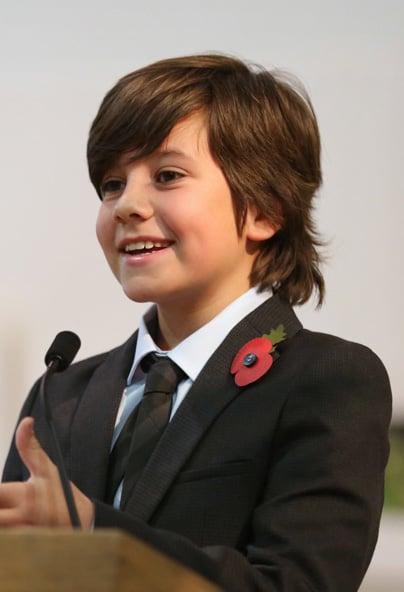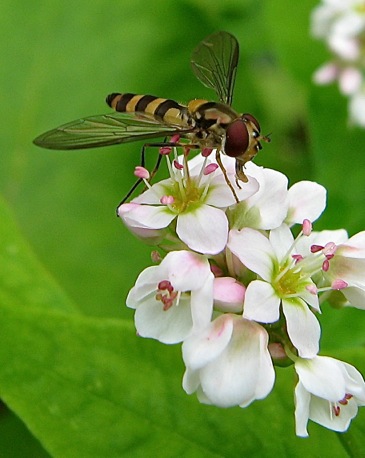We urgently need ambassadors for a different way of gardening. Could the Royal Horticultural Society’s appointment of a 10-year-old signal a sea change?
Just when I was feeling redundant, worn out and long past my I-can-make-a-difference date, and pondering why so few young gardening voices are speaking up about what’s happening to the natural world, 10-year-old George Hassall popped into my inbox, via a Royal Horticultural Society (RHS) press release. George, who was RHS Young School Gardener of the Year 2014, has been anointed as the latest of its swelling pool of ‘ambassadors’ – chosen, presumably, to reflect the charity’s all-inclusive nature (and defuse its reputation for snootiness).
The RHS hopes that, as its Young Ambassador, George will encourage more schools to take up gardening, and here’s to that; I loathed tangling with balls and bats and running in the rain. Our vibrant, gentle school garden became my teenage solace. School gardens are perhaps our best hope of connecting new and future generations with the real, living world – the one beyond the shiny tablet screen, the one that makes our fingers dirty, the one that’s under escalating assault.
It’s a great achievement for someone just one decade in, and my hat comes off to George – especially for breezing through his speech at the recent unveiling of the RHS’s ‘Vision’ (PDF) for its future activities. George’s unfettered enthusiasm has helped drag me from my ‘I’m past it’ slumber, and it’s this bit of his speech which really perked me up. ‘I’m really passionate about the environment and it’s important for it to be protected for the future … I’ve learnt all about how plants, insects and wildlife play a role in keeping the planet safe; that’s why doing gardening at school is so important.’ I wonder if any of the audience’s diehard lobbyists for peat and pesticide use, or defenders of Roundup weedkiller and bee-harming neonicotinoids, or celebrity ‘wobblers’ on climate change – all of which threaten the well-being of our environment – even blinked. Any shamefaced glances at the floor were doubtless lost in the cheers for George’s speech.

But maybe George knew his audience. Maybe he wanted to signal that his generation, as its roots and influence in horticulture spread (he wants to be a head gardener one day), won’t shy away from putting the environment at the heart of all they do. Either way, there has never been a more pressing time to get gardening, and the businesses that serve it, back in harmony with the shifting, turbulent world around us. Gardening’s old guard, especially those siren voices in the garden media, who’ve clung too long to a defunct vision of gardening divorced from nature, and who are irked by the ‘e’ word, are thankfully fading. We now need the energy, the fearlessness and the idealism of George’s generation to roll back the damage done, to speak clearly and boldly, and to ditch platitudes for words lit up by the flames in their bellies.
But, dear young gardeners of the future – you champions of nature, you budding ambassadors for this wonderful, soul-enriching hobby, this fine and essential (albeit modestly-paying) profession – none of this is likely to be a doddle.
Crucially, you’ll need to decide how much your love of gardening is about what’s going on around you, and how much it’s about you. If you’re intent on using gardening as a seedbed to cultivate your own celebrity, as somewhere to hone your brand, while plastering cheesy selfies taken with ‘legends’ on social media, that’s fair enough. Celebrity is, after all, where the big money is in the gardening world.
The problem with celebrity is that it will douse your fiery voice. Fearlessness will be ousted by caution as you eye up your next ‘big chance’; you won’t dare risk rocking the boat. Your passion for protecting the natural world will be sapped as you’re sucked into an industry that fears scrutiny, which heckles and bullies dissent – but which will fete you if you swear allegiance to it. Mentioning the ‘e’ word will be out; uttering the ‘o’ word (‘organic’) invites a right old kicking. If you’re concerned more with ecosystems than with your own egosystem, if avarice and fame don’t shake your riddle, it can be a tricky path – but stay plucky, be genuine.
Of course, dear horticultural hopefuls of tomorrow, you could use social media to tell your own stories, to shake up the gardening world, to repot it so it’s fit for the future. YouTube, with its global reach, is crying out for a ‘Real Gardener’s Question Time’ channel, where you can ask all those urgent, vital questions – about pesticides and weedkillers and so much else – which get censored from the radio programme that airs as we doze off after Sunday lunch. Be you 10 or 100 years old, there’s no rule saying you can’t ask tough questions, fearlessly, of anyone. Fear can creep in, like damp, as you get older, so don’t dilly-dally; wait for no one’s permission.

Words like the ones I’m typing don’t always slice much ice nowadays, but an army of impassioned, earth-friendly young gardeners vlogging away (a ‘vlog’, fellow dinosaurs, is a blog with video content) surely could, so let that rebelliousness rip. I’d love to hear podcasts from your plot, where a hoverfly’s hum replaces the hiss of a chemical sprayer, with you explaining why. Hoverflies, and all the other life that helps us to garden well without pesticides – but which can’t afford adverts – need ambassadors too.
If communication’s your gift, our gardening magazines desperately need a transfusion of young, fresh blood. They need enquiring and fearless journalism injected into their tired, lazy veins. If you’d like to see concern for nature given urgency and respect, rather than editors bullying and berating environmentalists, get in there and change it. Or create an alternative: we desperately need an independent, nature-infused gardening magazine that does meaningful reporting without having to look over its shoulder to check if it’ll upset big business. In the meantime, take magazines or newspapers or companies which seek to mislead gardeners to task on your blog (or vlog); flush them out on Facebook; name and shame them on Twitter. Challenge pollinates the seeds of change. Gardeners acting together are persuasive change-makers.
As for the young gardeners who’d rather just be growing, away from the limelight: future horticulture needs you too. There’s a growing hunger among gardeners to know where their plants have come from, who grew them, how they were grown, and what effect growing them had on the world around us. Responsible, ethical, transparent horticulture, where profit-driven concerns don’t always trump ecological ones, is the future. As we’re compelled to cut our energy use (in order to temper climate catastrophe) we’re going to need many more modest, easy-to-reach local nurseries, brimful with quality, low-mileage, peat-free plants, and expert knowledge which helps us marry our dreams of a beautiful garden with a reverence for nature. We’re ravenous: please feed us.
I’m back from my slump, and I’ve George to thank. If a new generation of gardeners recognise that it’s vital we protect the environment for the future, then things are truly on the up. Energised young gardeners acting with passion, boldness, fearlessness and rebelliousness are just what we need. Bring them on.
Text and hoverfly image © John Walker. Image of George Hassall courtesy Royal Horticultural Society.
Find John on Twitter @earthFgardener










